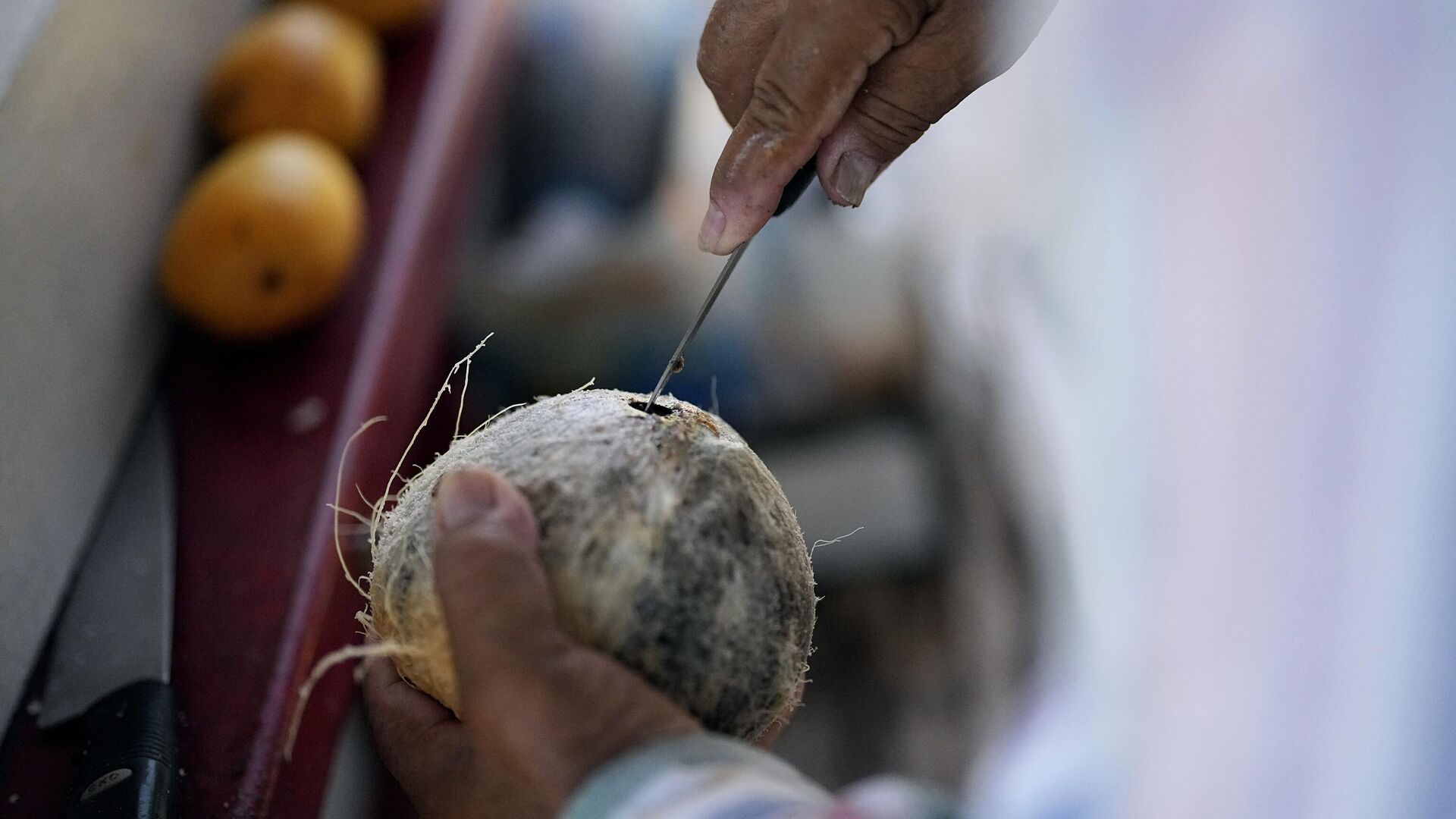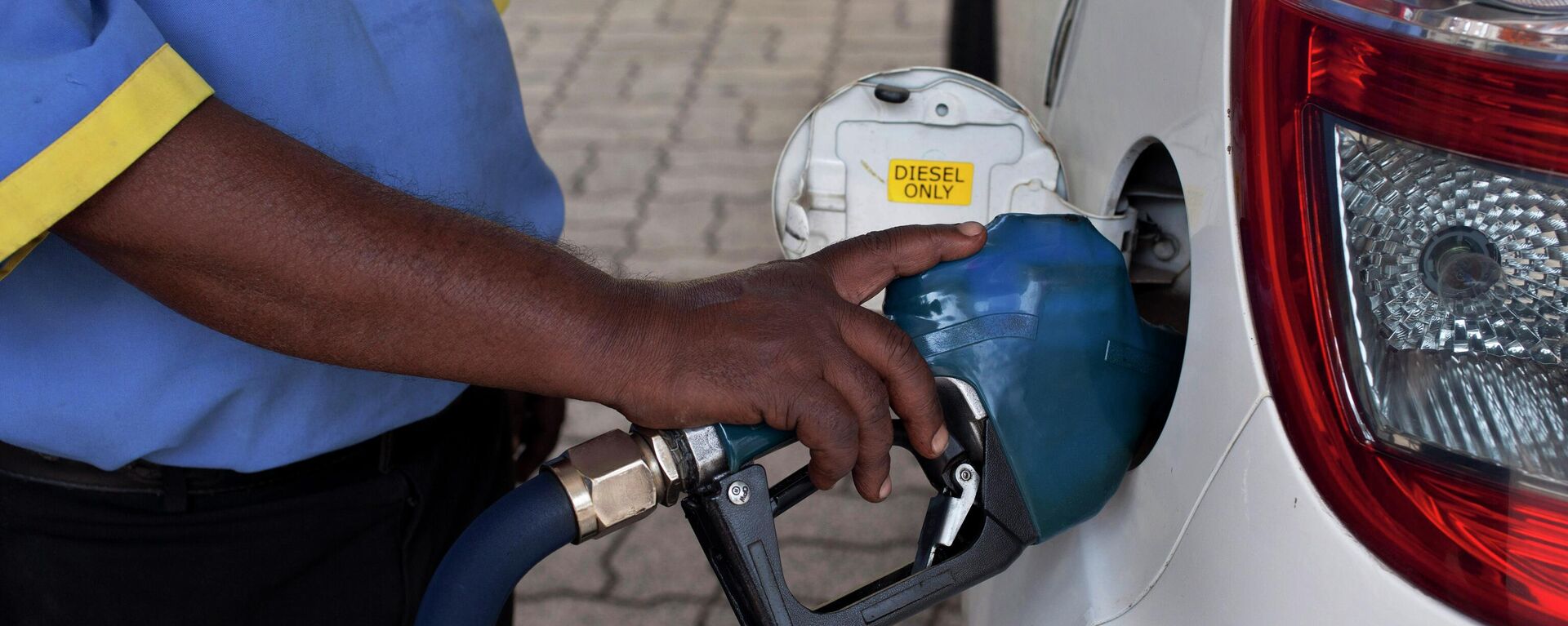https://sputniknews.in/20230907/lightweight-and-durable-concrete-made-from-coconut-shells-created-in-russia-4106992.html
Lightweight and Durable Concrete Made From Coconut Shells Created in Russia
Lightweight and Durable Concrete Made From Coconut Shells Created in Russia
Sputnik India
Scientists from the Don State Technical University (DSTU) have developed a new concrete composition that contains up to 10% by weight of coconut shell.
2023-09-07T21:00+0530
2023-09-07T21:00+0530
2023-09-07T21:00+0530
science & tech
science & tech
russia
recycling
environment
waste management
https://cdn1.img.sputniknews.in/img/07e7/09/07/4106804_0:320:3072:2048_1920x0_80_0_0_7015f030d5fb2de047321a301345f9ee.jpg
Scientists from Russia's Don State Technical University (DSTU)* have developed a new concrete composition that contains up to 10% by weight of coconut shell.The results were published in the Materials website.The DSTU scientists explained that the coconut shell is functionally similar to natural rubble, as it has a rough and angular structure, and its surface has even greater relief. This improves the quality of adhesion of the aggregate and the cement-sand matrix, which ensures high concrete characteristics.Reducing the weight of concrete is a big advantage for construction, according to the scientists. The applicability of such structures will be higher, for example, in dense urban areas or in complex engineering and geological conditions.In the future, the research team intends to continue the search for plant components that can replace cement, crushed stone and sand in concrete, as well as the design of environmentally friendly and low-cost structures from new building mixtures.*DSTU is a participant in "Priority-2030", a state support program for universities of the Russian Federation.
https://sputniknews.in/20230816/russian-indian-scientists-discover-way-to-squeeze-biodiesel-from-barbados-nut-3638487.html
russia
Sputnik India
feedback.hindi@sputniknews.com
+74956456601
MIA „Rossiya Segodnya“
2023
Sputnik India
feedback.hindi@sputniknews.com
+74956456601
MIA „Rossiya Segodnya“
News
en_IN
Sputnik India
feedback.hindi@sputniknews.com
+74956456601
MIA „Rossiya Segodnya“
Sputnik India
feedback.hindi@sputniknews.com
+74956456601
MIA „Rossiya Segodnya“
science & tech, russia, recycling, environment, waste management
science & tech, russia, recycling, environment, waste management
Lightweight and Durable Concrete Made From Coconut Shells Created in Russia
The new concrete is cheaper than traditional ones by 15%, and the structures made from it are lighter and more durable.
Scientists from Russia's Don State Technical University (DSTU)* have developed a new concrete composition that contains up to 10% by weight of coconut shell.
The results were published in the
Materials website.
According to experts, finding new compositions of building mixtures that use plant waste is a relevant problem in the world. One type of such waste, which is common in many regions, is processed coconut products.
The DSTU scientists explained that the coconut shell is functionally similar to natural rubble, as it has a rough and angular structure, and its surface has even greater relief. This improves the quality of adhesion of the aggregate and the cement-sand matrix, which ensures high concrete characteristics.
"Our approach allows us to solve the problem of recycling this type of waste, which is relevant for a number of regions, and bring to the market a new building material that is lighter and cheaper than traditional concrete," said Sergey Stelmakh, head of the Department of Construction of Unique Buildings and Structures at DSTU.
Reducing the weight of concrete is a big advantage for construction, according to the scientists. The applicability of such structures will be higher, for example, in dense urban areas or in complex engineering and geological conditions.
"An important aspect of our study is the complete description of the new dependencies and relationships that arise in the structure of concrete containing coconut shells," Stelmakh added.
In the future, the research team intends to continue the search for plant components that can replace cement, crushed stone and sand in concrete, as well as the design of environmentally friendly and low-cost structures from new building mixtures.
*DSTU is a participant in "Priority-2030", a state support program for universities of the Russian Federation.


